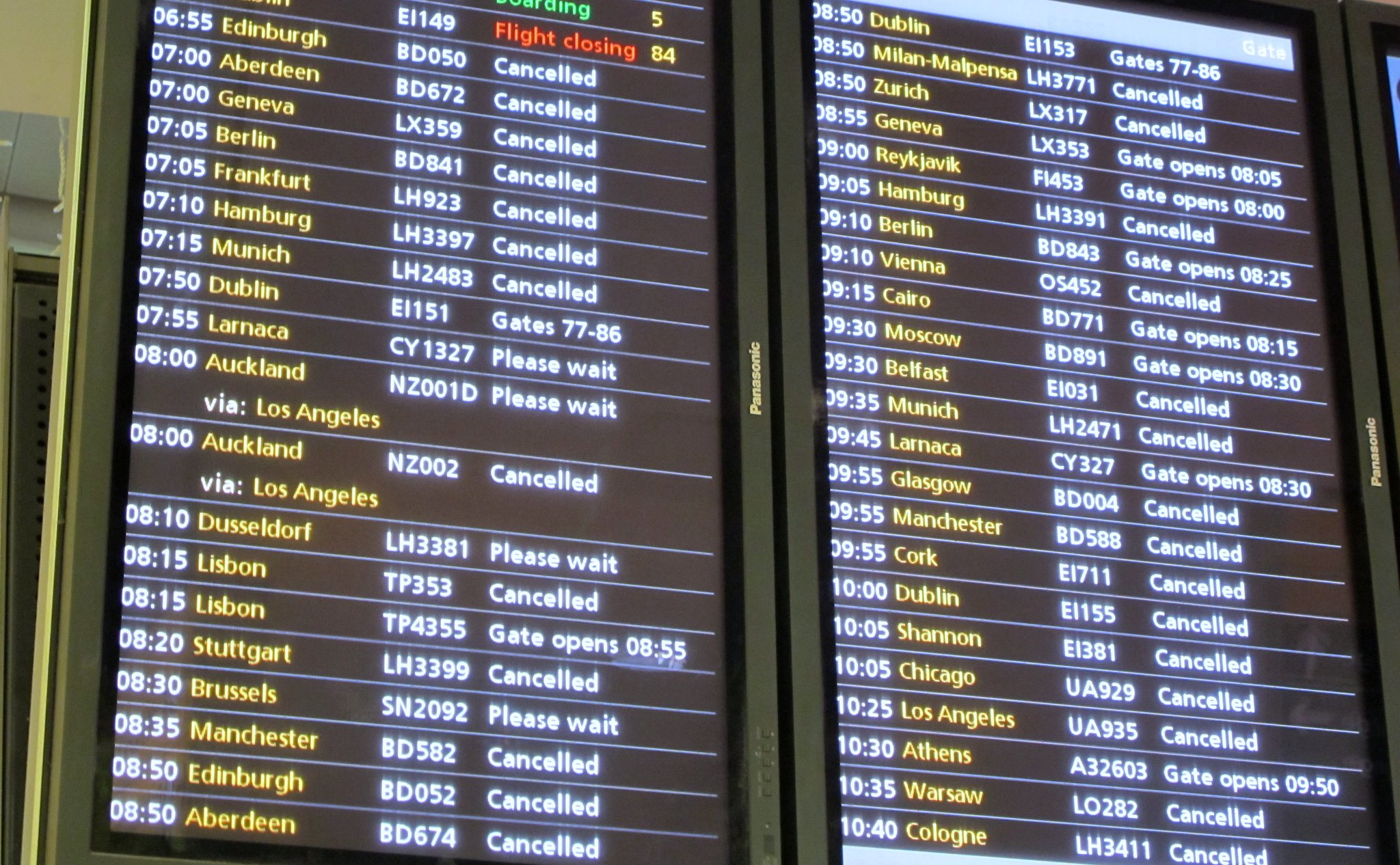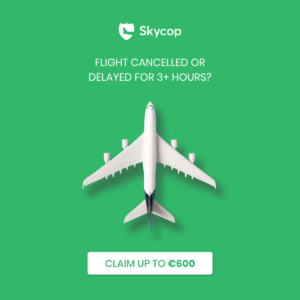The coronavirus pandemic has thrown countless travel plans into disarray. So many flight cancellations by individuals and airlines poses a dilemma: full refunds or travel vouchers?
What are your experiences on refund/vouchers? Which airlines are refusing to refund? Share your experience in the comment section below.
Vouchers (Travel Credits)
If you opt to cancel your flight, amidst the coronavirus pandemic, the airline will most likely give you a travel voucher. These usually give you credit for the full amount you paid for the airfare, although bonuses (up to 10%) will sometimes be included.
When I cancelled a Qantas flight from Melbourne to Hong Kong in March, I was given the full credit of my flight ($621 AUD).
Some travel vouchers will be extended beyond their expiration date, should the pandemic continue to halt international travel.
For example, my Qantas voucher was initially valid until January 2021; however, Qantas has had to extend travel vouchers until December 31st, 2021.
Travel vouchers are preferable to airlines, because a looming travel deadline for passengers will likely encourage travel. Furthermore, pre-crisis airline policies often dictated high cancellation fees; a basic economy ticket would often come without full refunds.
The catch with travel vouchers lies in the airfare cost. Oftentimes the travel voucher will not be enough to cover a re-booked flight, owing to fluctuating airfare prices.
If you booked a flight in the off-peak season, then the cost would have been considerably lower than a peak season flight. When re-booking, bear in mind that additional fees may be incurred.
Refunds
The case for a full refund is strong, although airlines are making it increasingly difficult for passengers to get one. It may take many calls or many months of waiting before you receive something back.
Am I Entitled to a Refund?
This varies by country to country.
United States
In the following situations, passengers are entitled to a refund of the ticket price based on US Department of Transport (DOT) ruling.
- Cancelled Flight – A passenger is entitled to a refund if the airline cancelled a flight, regardless of the reason, and the passenger chooses not to travel.
- Schedule Change/Significant Delay – A passenger is entitled to a refund if the airline made a significant schedule change and/or significantly delays to a flight and the passenger chooses not to travel.
- Class of Service Change – A passenger is entitled to a refund if the passenger was involuntarily moved to a lower class of service. For example, if the passenger purchased a First Class ticket and was downgraded to Economy Class, due to an aircraft swap, the passenger is owed the difference in fare.
- Fully Refundable Ticket – Passengers who purchase fully refundable tickets are entitled to a refund when they do not use the purchased ticket to complete their travel
Click on link here to file a complaint with US DOT.
Europe
Passengers are entitled to certain refunds based on the European Union Passenger Rights Law.
- Cancelled Flight – Passengers whose flights are cancelled should be able either to obtain reimbursement of their tickets or to obtain re-routing under satisfactory conditions, passengers should be adequately cared for while awaiting a later flight.
- Schedule Change/Significant Delay – Passengers whose flights are delayed for a specified time should be adequately cared for and should be able to cancel their flights with reimbursement of their tickets.
- Class of Service Change – If an operating air carrier places a passenger in a class lower than that for which the ticket was purchased it shall, within seven days, reimburse 30% (1500km or less), 50% (EU flights over 1500km), or 75% (if not A or B).
- Fully Refundable Ticket – Currently if a passenger purchases a fully-refundable ticket, then they are legally entitled to a refund should the need arise.
12 EU countries have written to Brussels, asking for this law to be temporarily suspended in light of the COVID-19 situation, allowing airlines to issue vouchers instead of full refunds.
China
- Cancelled Flight – In China, passengers only have to be reimbursed if the airline cannot make alternative transport arrangements. If the cancellation is due to weather, all costs must be borne by the passenger.
- Schedule Change/Significant Delay – Airlines are only required to provide passengers with meals and/or accommodation if the delay or cancellation is caused by events attributable to the carrier. If the delay is due to external factors, then the airline is not responsible for any costs.
- Class of Service Change – If airlines fail to provide the reserved class of seat, and an alternate flight in that class cannot be arranged, then passengers are eligible for an involuntary refund. The amount is at the airline’s discretion.
- Fully Refundable Ticket – Passengers are entitled to a full refund if they have purchased a ticket with a full refund guarantee.
Australia
Australian Flight Consumer Law is mandated by the Consumer Commission.
- Cancelled Flight – If a flight is cancelled, you are legally entitled to a refund or replacement. If the airline cannot immediately find an alternate arrangement, then all passengers are entitled to a full refund.
- Schedule Change/Significant Delay – Similarly to a cancellation, airlines must give a full refund if alternative transport cannot be arranged. These rules can change if the delay is caused by external factors.
- Class of Service Change – Under Australian consumer law, if the airline does not deliver the service you payed for, you are entitled to a refund. There is no specific clause on classes of travel, but the aforementioned law applies.
- Fully Refundable Ticket – If you have purchased a fully-refundable ticket, you are protected by Australian consumer law. You are therefore entitled to receive the full refund in accordance with the service you purchased.
Consumer laws vary by country-to-country. If you are in doubt, most governments provide all the relevant consumer laws for refunds.
What happens to Your Voucher and Refund if the Airline goes Bankrupt?
Depending on how the bankruptcy is handled, ticket holders may or may not be in the clear. Companies will often use bankruptcy as a legal tool to restructure their debts — in other words, an airline that goes bankrupt won’t necessarily be liquidated.
Investors who own corporate debt and stock would be paid back first. Those with vouchers may be “out of luck”.
Travel vouchers don’t actually have cash value. If a traveller is worried about their airline going under, they may be better off booking a trip using their voucher and then taking out a travel insurance policy on that trip that covers bankruptcies.
You Bought a Ticket Directly From the Airline, but you can no Longer fly (or Don’t Want to fly)
There is no legal mandate requiring that airlines refund travellers who are suddenly unable to fly, even in a pandemic. However, most carriers have drastically loosened their usual rules and change fees, so check the airline’s homepage for the current policy. Most airlines now allow you to cancel travel and re-book later.
Refund a Ticket Bought Through a Travel Agent
You have to go back to approach the travel agent for change or refund. First look over your travel itinerary and plane ticket to determine whether your ticket is eligible for refund or credit (Whether the flight has been cancelled, or the schedule has been changed significantly).
The travel agent may charge an additional fee to process changes/refund.
Feature Image: Flickr/Seanfoneill
What are your experiences on refund/vouchers? Which airlines are refusing to refund? Share your experience in the comment section below.




